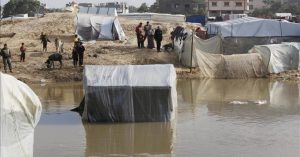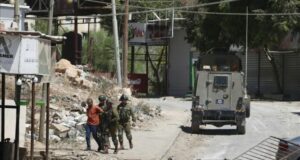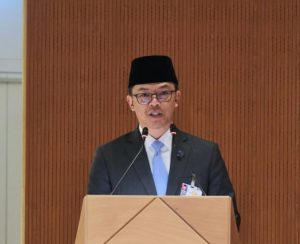
A foreign tourist takes pictures in front of Mount Agung erupting seen from Kubu sub-district.
Denpasar, Bali, MINA – Coordinating Minister for Maritime Affairs Luhut Binsar Padjaitan has revealed that the government planned to revoke the emergency status of Mount Agung, Karangasem District, Bali Island.
“We do not see the need to maintain its emergency status. However, we still need to provide rice to the people, because several of them are stuck,” Minister Pandjaitan was quoted by Antara News a saying after attending a high-level meeting, along with Finance Minister Sri Mulyani, here, Friday.
The condition of Mount Agung, which erupted several times recently, would be discussed in a limited cabinet meeting to be led by President Joko Widodo, Friday afternoon.
“We hope the President can make a decision this afternoon, so we can implement it,” he stated, following the meeting, which was also attended by the governor of Bank Indonesia (BI), the Bali governor, as well as the Bali police and military chiefs.
Also Read: KH Anwar Iskandar Re-Elected as Chairman of Indonesia’s Ulema Council for 2025–2030
Bali Governor Made Mangku Pastika remarked that the emergency status declared by the Indonesian authorities following the eruptions at Mount Agung recently had affected the island`s tourism industry, because tourists were scared to come, while, in fact, most parts of Bali remained safe and were not affected by the volcanic eruption.
He agreed that the emergency status should be revoked, because the volcanic activities of Mount Agung were decreasing.
“Emergency status has made the world worried too much. Therefore, the status should be withdrawn, because there is no emergency in such a condition currently,” he stressed.
He mentioned that the Bali provincial government had earlier requested for an emergency status, because it was necessary to speed up the fund disbursements to buy logistics for the evacuees.
Also Read: MUI Warns Government of Risks Behind Proposed Stabilization Force Deployment to Gaza
“Now, we have to ensure that the logistics supply is smooth, although there is no longer an emergency status,” he noted.
The Bali administration needs to provide 15 to 20 tons of rice for more than 71 thousand evacuees currently being accommodated in 240 refugee camps. T/RS5/RS1)
Mi’raj Islamic News Agency (MINA)
Also Read: Prof. El-Awaisi: The Mandate to Liberate Al-Aqsa Began at Prophethood
































 Mina Indonesia
Mina Indonesia Mina Arabic
Mina Arabic